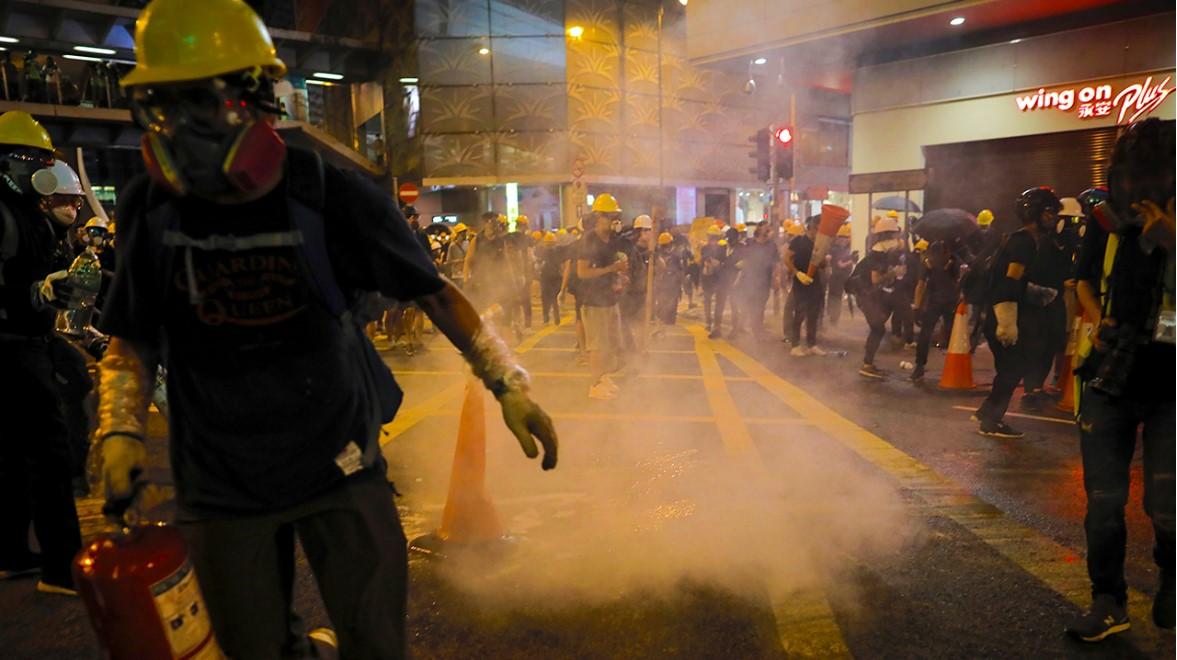In Hong Kong, western companies activate contingency plans as protests grow
Western companies with a large presence in Hong Kong started to activate their contingency plans this week as mass protests — and police action — continued to spread, becoming increasingly unpredictable.
On Tuesday, after protesters disrupted operations at Hong Kong’s airport for the second day in a row, resulting in scores of canceled flights, bankers and company executives told The Wall Street Journal that social unrest in the city has led to postponements of business meetings, deal discussions and other events.
The Journal reported BlackRock Inc. postponed a two-day conference at the Four Seasons Hotel in Hong Kong that was supposed to take place in early September, instead scheduling the event (which draws BlackRock’s top executives) for February.
“Despite the planning to date, we believe the event is best held at a later time when more attendees from throughout the region are able to join,” BlackRock told the Times.
BlackRock did not immediately respond to a request for comment.
Protests, now in their 10th week, began in June over a bill — put on hold for now — that would allow extradition from Hong Kong to mainland China, where the courts are controlled by the Communist Party. Since then, however, they’ve spread to reflect wider demands for democratic reform, including calls for more direct elections and the removal of Hong Kong’s embattled leader, Carrie Lam. Clashes between protesters and police have also increasingly descended into violence, with police firing tear gas and beating some protesters with batons across the city, according to multiple media reports.
But the growing violence has also spurred companies to hold briefings and circulate memos advising employees on what to do if they find themselves in danger or unable to travel to work.
At different points of the protests, Citigroup has closed some branches as a precautionary measure, suggesting customers instead use mobile banking.
CLICK HERE TO GET THE FOX BUSINESS APP
Goldman Sachs employees, for instance, are receiving communication updates on travel and safety issues, including advice on a contingency plan, according to the Journal.
And European insurance giant AXA, which has about 2,000 employees in Hong Kong, told the Journal it has security teams closely monitoring the situation in the city and has, at times, asked workers to leave the office early as a result of the unrest.




















